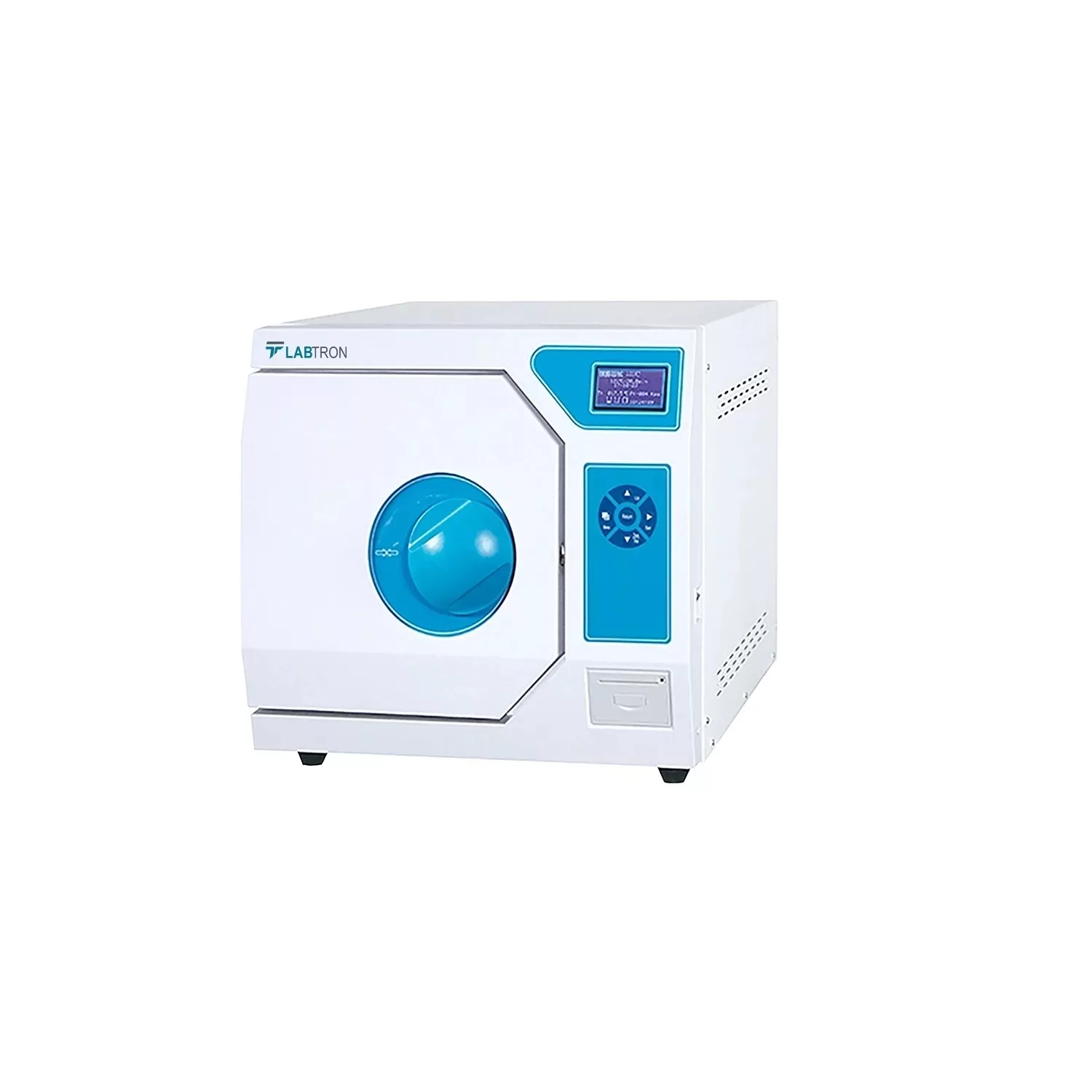Autoclave: Reliable Sterilization for Laboratory, Medical, and Industrial Applications
Autoclave Labtron LTTA F20 is an essential piece of sterilization equipment used across laboratories, medical facilities, research centers, and manufacturing industries. By using high-pressure steam at elevated temperatures, autoclaves effectively kill bacteria, viruses, fungi, and spores—ensuring tools, instruments, and materials are completely sterile and safe for reuse or further experimentation.
Whether you’re working in a hospital, pharmaceutical company, university lab, or food production plant, an autoclave provides a fast, dependable, and chemical-free method of sterilization that meets global safety standards.
What Is an Autoclave?
An autoclave is a pressure vessel designed to sterilize equipment and supplies by subjecting them to steam under pressure. Typically operating at temperatures of 121°C to 134°C (250°F to 273°F), autoclaves eliminate all forms of microbial life, including resilient bacterial spores.
Autoclaves come in various sizes and configurations, from compact benchtop units to large-capacity vertical or horizontal systems. Depending on the type and load, sterilization cycles can vary in duration, pressure, and temperature.
How Does an Autoclave Work?
-
Loading: Tools, media, glassware, surgical instruments, or waste materials are placed inside the sterilization chamber.
-
Air Removal: Air is removed either by gravity displacement or vacuum pump to ensure efficient steam penetration.
-
Steam Injection: High-pressure steam is introduced into the chamber.
-
Sterilization Phase: The load is held at a specific temperature (e.g., 121°C) for a fixed period (typically 15–30 minutes).
-
Exhaust & Drying: Steam is released, and in many models, a drying phase follows to ensure materials come out dry and ready for use.
Types of Autoclaves
🔹 Gravity Autoclave
Uses steam to displace air naturally. Best for sterilizing non-porous items like glassware, media, and sealed containers.
🔹 Vacuum (Pre-Vacuum) Autoclave
Uses a vacuum pump to remove air before steam injection, allowing faster, deeper steam penetration—ideal for porous loads like surgical instruments, textiles, and wrapped tools.
🔹 Class B Autoclave
Common in dental and medical settings, Class B autoclaves use a fractionated pre-vacuum system for high-efficiency sterilization of complex loads.
🔹 Vertical Autoclave
Space-saving design for laboratories with limited floor area. Commonly used for sterilizing liquids, culture media, or glassware.
🔹 Horizontal Autoclave
Larger capacity and more automation, often used in hospitals, research centers, or industrial settings.
Key Features of a Modern Autoclave
-
Digital Control Panel for setting temperature, time, and sterilization cycles
-
Pressure and Temperature Sensors for real-time monitoring
-
Automatic Door Locks for safety during operation
-
Stainless Steel Chamber for corrosion resistance and long lifespan
-
Drying Function to remove moisture after the sterilization cycle
-
Data Logging & USB Export for documentation and compliance reporting
-
Built-In Safety Systems such as over-pressure protection and thermal cut-offs
Applications of Autoclaves
| Sector | Typical Uses |
|---|---|
| Medical & Dental Clinics | Sterilizing surgical tools, dental handpieces, bandages |
| Pharmaceutical Labs | Sterilizing culture media, glassware, instruments |
| Food Industry | Sterilizing packaging materials, containers, and ingredients |
| Veterinary Clinics | Disinfecting instruments and waste disposal |
| Academic Institutions | Sterilizing lab equipment and experimental materials |
| Industrial Manufacturing | Preparing products for contamination-free environments |
Benefits of Using an Autoclave
✅ Complete Sterilization: Destroys all forms of microbial life, including spores.
✅ Eco-Friendly: Uses steam instead of harmful chemicals, reducing environmental impact.
✅ Cost-Effective: Reuse tools and reduce the cost of disposable supplies.
✅ Time-Saving: Fast sterilization cycles make equipment quickly available for reuse.
✅ Regulatory Compliance: Meets global standards for sterilization (ISO, CE, FDA, etc.).
✅ Versatile: Suitable for solid, liquid, porous, and biohazardous loads.
How to Choose the Right Autoclave
-
Load Type: For solid or porous items, opt for a vacuum autoclave. For simple liquids or glassware, a gravity model may suffice.
-
Capacity: Choose based on the volume of materials sterilized daily.
-
Cycle Options: Ensure the unit supports different sterilization cycles for various applications.
-
Automation Level: Consider touchscreen models with programmable cycles for ease of use.
-
Footprint & Portability: Benchtop models are ideal for smaller labs, while vertical and horizontal units suit higher-capacity needs.
-
Documentation Features: For regulated industries, models with data logging and report generation capabilities are essential.
Conclusion
A high-quality autoclave is the cornerstone of safe laboratory and medical practices. With the ability to sterilize a wide range of materials quickly and effectively, it ensures hygiene, enhances productivity, and meets global compliance standards. Whether you’re managing a research lab, clinic, or industrial facility, choosing the right autoclave helps you maintain a contamination-free environment with confidence.
Explore our comprehensive selection of autoclaves to find the perfect solution for your sterilization needs—engineered for performance, safety, and reliability.





Reviews
There are no reviews yet.